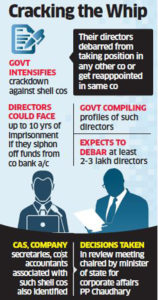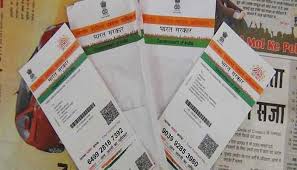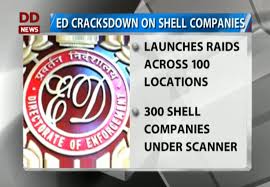
The government crackdown against 331 “suspected shell companies” has hit several investors, including mutual funds and small investors, who hold shares worth nearly Rs 9,000 crore in these companies.
In a late circular on Monday, market regulator Securities and Exchange Board of India (Sebi) directed stock exchanges to immediately restrict trading in 331 companies identified as “shell companies” by the Ministry of Corporate Affairs in consultation with the Serious Fraud Investigation Office (SFIO) and the income-tax (I-T) department.
While, by definition, a shell company is one without any business operations or assets, several companies with active business dealings too were part of the list with 331 names. At least five companies in the list have market capitalisation (m-cap) of over Rs 500 crore each, with diverse shareholding from institutional as well as retail investors.
These companies have been placed in the so-called graded surveillance measure (GSM) stage VI, where trading in the security is allowed only once a month with “surveillance deposit” of three times the trade value.
Companies, including J Kumar Infraprojects (m-cap of Rs 2,150 crore), Prakash Industries (Rs 2,124 crore), Parsvnath Developers (Rs 1,036 crore), and multinational company SQS India BFSI (Rs 535 crore), termed the “shell company” classification as wrongful and urged Sebi and exchanges to reconsider the directions.
“It is hereby clarified J Kumar is not a shell company and the suspicion of the regulator is uncalled for. Our company’s compliance track record, both with the exchanges and Registrar of Companies, has been impeccable,” said the Mumbai-based infra developer, highlighting the various projects it currently working on, including some government contracts.
Sebi sources said over three dozen companies in the list technically don’t fall under the definition of a shell company and the circular maybe revised to correct the nomenclature. “The regulator is verifying the companies who have raised grievances. However, a rectification may take some time as the exchange needs to conduct an audit and submit a report to Sebi. If there is an all-clear given by the auditors and the regulatory authorities involved, Sebi can lift the ban,” said a source.
Another source said the Ministry of Corporate Affairs has widened the scope of shell companies. Those with cases against them in the SFIO or those that have evaded taxes are part of the list. A finance ministry official said concerns of investors in these companies will be looked into.
Several companies made detailed representations to Sebi and corporate affairs ministry, stating they can’t be termed as shell companies. “There could be a possibility that companies who are listed in the shell categories are genuine. In that case, they can always approach Sebi and stock exchanges to remove the ban. This is more of a preventive action and could be rectified if an entity is not found guilty,” said J N Gupta, managing director at Stakeholders Empowerment Services (SES).
Experts said the while all companies may not be shell companies, it is possible that the enforcement agencies may have found some dubious links and decided to take action.
“This is in continuation of strong messages being sent to corporate entities that frauds of any nature will face strong action. Greater vigil and networking of several databases would throw up more malpractices and stricter action,” said Prithvi Haldea, founder-chairman at Prime Database.
Government’s fight against market manipulation to evade LTCG
Several probes by the I-T department and Sebi have shown that listed shell companies were being used to launder money by using the stock exchange route. The typical modus operandi has been to buy shares of shell firms, jack up the prices and sell shares after a year to claim long-term capital gains (LTCG) exemption.
The government decided to crack down on such sham transactions after the Special investigation teams (SIT) on black money suggested a mechanism to detect shell companies and put in place checks and balances to curb stock market abuse.
In the last three years, the I-T department has identified over 1,155 shell companies which were used as conduits by over 22,000 beneficiaries. The amount involved in non-genuine transactions of such beneficiaries was over Rs 13,300 crore. So far, the I-T department has launched criminal prosecution complaints against 47 persons. The SFIO, too, has undertaken the exercise of preparing comprehensive digital database of shell companies and their associates. Based on the SFIO report, the MCA has removed 162,618 companies from the Registrar of Companies.
 Directors of shell companies which have not filed tax returns for three or more years will be barred from taking similar positions elsewhere or getting reappointed, the government said, as it intensified the crackdown on firms that exist only on paper.
Directors of shell companies which have not filed tax returns for three or more years will be barred from taking similar positions elsewhere or getting reappointed, the government said, as it intensified the crackdown on firms that exist only on paper.






